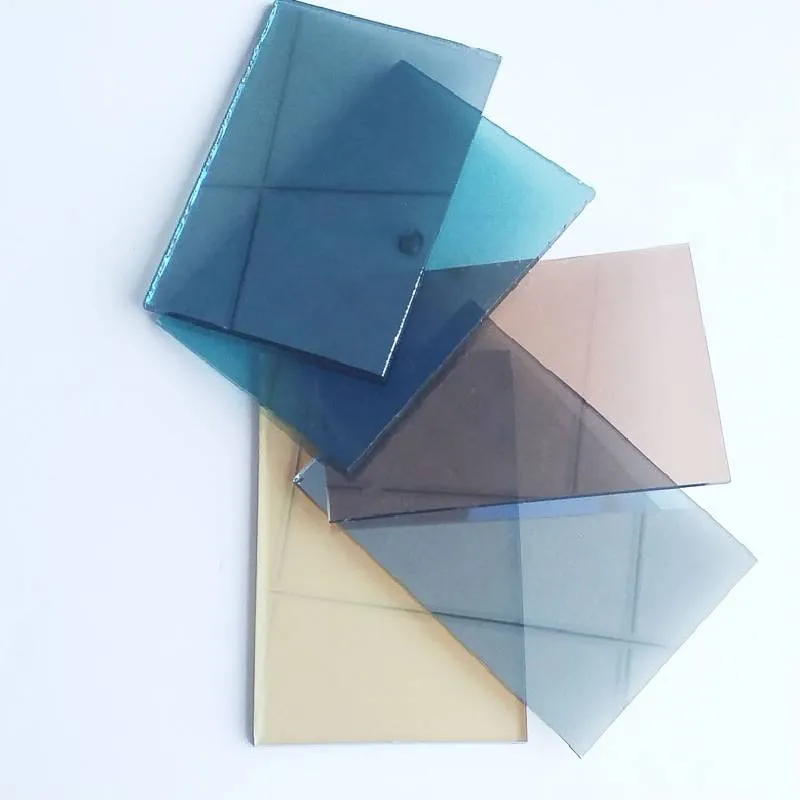Low-E Tempered Glass A Sustainable Solution for Modern Architecture
In the world of modern architecture and construction, the demand for energy-efficient materials continues to grow. One such innovative product that has gained traction is Low-Emissivity (Low-E) tempered glass. This advanced glazing solution offers a multitude of benefits that cater to the needs of contemporary buildings while addressing environmental concerns.
What is Low-E Tempered Glass?
Low-E tempered glass is a type of glass that has been treated to enhance its thermal insulation properties. The term “Low-E” refers to the low emissivity coating applied to the glass surface. This microscopic coating is typically made from metallic oxides, which allows the glass to reflect heat while permitting visible light to pass through. The tempered aspect of the glass refers to a process in which the glass is heated and then rapidly cooled to increase its strength and durability.
Energy Efficiency and Comfort
One of the most significant advantages of Low-E tempered glass is its energy efficiency. In buildings, significant heat loss can occur through conventional windows. Low-E glass minimizes this loss by reflecting heat back into the building during winter months while preventing excessive heat entry during summer. This property contributes to maintaining an optimal indoor temperature, which not only enhances comfort for occupants but also reduces the need for artificial heating and cooling, leading to lower energy bills.
Furthermore, according to studies, homes and buildings fitted with Low-E glass can achieve up to 30% greater energy efficiency compared to those with standard glass. This efficiency aligns perfectly with global sustainability goals, as reducing energy consumption helps decrease carbon footprints.
UV Protection
In addition to thermal efficiency, Low-E tempered glass offers outstanding UV protection. The coating effectively blocks harmful ultraviolet rays, which can cause damage to fabrics, artwork, and furniture indoors. By minimizing UV exposure, Low-E glass contributes to the longevity and preservation of interior elements, making it an excellent choice for residential and commercial properties alike.
low e tempered glass
Durability and Safety
Low-E tempered glass is not only energy-efficient but also incredibly durable. The tempering process strengthens the glass, making it about five to six times more resistant to impact than regular glass. This added strength enhances the safety of buildings, particularly in areas prone to natural disasters or extreme weather conditions. Additionally, if Low-E tempered glass does break, it shatters into small, blunt pieces rather than sharp shards, further reducing the risk of injury.
Aesthetic Versatility
Architects and designers appreciate Low-E tempered glass for its aesthetic versatility. The glass allows for expansive views and natural light while maintaining energy efficiency, making it an attractive option for modern and contemporary designs. Whether used in residential homes, commercial buildings, or public structures, Low-E tempered glass can be tailored to fit a variety of architectural styles and requirements.
Environmental Impact
As the construction industry seeks ways to be more environmentally responsible, Low-E tempered glass provides a viable solution. By reducing energy consumption and enhancing the lifecycle of buildings, it plays a crucial role in the shift towards sustainable construction practices. The use of Low-E glass can contribute to achieving LEED (Leadership in Energy and Environmental Design) certification, an important recognition for green building initiatives.
Conclusion
In conclusion, Low-E tempered glass is a remarkable innovation that integrates efficiency, durability, and aesthetics into modern architecture. Its ability to enhance energy performance, protect against UV rays, and ensure safety makes it an invaluable asset for both new constructions and renovations. As the world increasingly prioritizes sustainability, Low-E tempered glass stands out as a sophisticated choice that meets the demands of 21st-century living while supporting environmental goals. Whether for residential or commercial projects, embracing Low-E tempered glass is a step toward a greener, more efficient future in building design.
 Afrikaans
Afrikaans  Albanian
Albanian  Amharic
Amharic  Arabic
Arabic  Armenian
Armenian  Azerbaijani
Azerbaijani  Basque
Basque  Belarusian
Belarusian  Bengali
Bengali  Bosnian
Bosnian  Bulgarian
Bulgarian  Catalan
Catalan  Cebuano
Cebuano  Corsican
Corsican  Croatian
Croatian  Czech
Czech  Danish
Danish  Dutch
Dutch  English
English  Esperanto
Esperanto  Estonian
Estonian  Finnish
Finnish  French
French  Frisian
Frisian  Galician
Galician  Georgian
Georgian  German
German  Greek
Greek  Gujarati
Gujarati  Haitian Creole
Haitian Creole  hausa
hausa  hawaiian
hawaiian  Hebrew
Hebrew  Hindi
Hindi  Miao
Miao  Hungarian
Hungarian  Icelandic
Icelandic  igbo
igbo  Indonesian
Indonesian  irish
irish  Italian
Italian  Japanese
Japanese  Javanese
Javanese  Kannada
Kannada  kazakh
kazakh  Khmer
Khmer  Rwandese
Rwandese  Korean
Korean  Kurdish
Kurdish  Kyrgyz
Kyrgyz  Lao
Lao  Latin
Latin  Latvian
Latvian  Lithuanian
Lithuanian  Luxembourgish
Luxembourgish  Macedonian
Macedonian  Malgashi
Malgashi  Malay
Malay  Malayalam
Malayalam  Maltese
Maltese  Maori
Maori  Marathi
Marathi  Mongolian
Mongolian  Myanmar
Myanmar  Nepali
Nepali  Norwegian
Norwegian  Norwegian
Norwegian  Occitan
Occitan  Pashto
Pashto  Persian
Persian  Polish
Polish  Portuguese
Portuguese  Punjabi
Punjabi  Romanian
Romanian  Russian
Russian  Samoan
Samoan  Scottish Gaelic
Scottish Gaelic  Serbian
Serbian  Sesotho
Sesotho  Shona
Shona  Sindhi
Sindhi  Sinhala
Sinhala  Slovak
Slovak  Slovenian
Slovenian  Somali
Somali  Spanish
Spanish  Sundanese
Sundanese  Swahili
Swahili  Swedish
Swedish  Tagalog
Tagalog  Tajik
Tajik  Tamil
Tamil  Tatar
Tatar  Telugu
Telugu  Thai
Thai  Turkish
Turkish  Turkmen
Turkmen  Ukrainian
Ukrainian  Urdu
Urdu  Uighur
Uighur  Uzbek
Uzbek  Vietnamese
Vietnamese  Welsh
Welsh  Bantu
Bantu  Yiddish
Yiddish  Yoruba
Yoruba  Zulu
Zulu 

